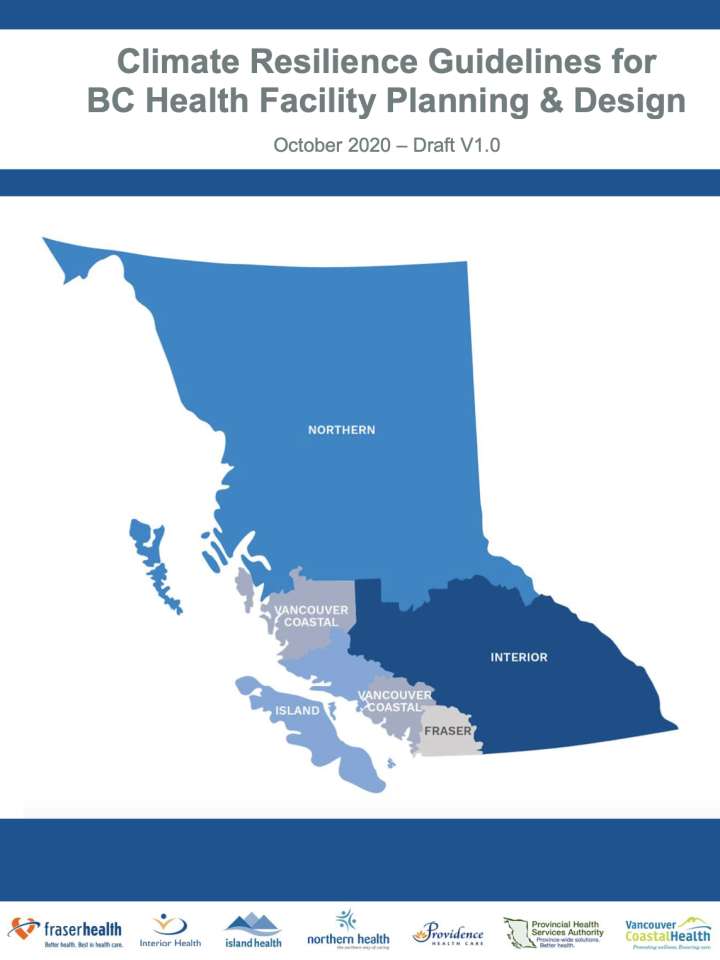Climate resilience guidelines for BC health facility planning and design
The purpose of the Climate Resilience Guidelines for Health Facility Planning and Design is to better enable the planning and design of new health facilities that are equipped to deal with the present and increasing challenges of climate change, including extreme heat and humidity, air quality impacts, flooding and extreme events. Hospitals are part of the critical infrastructure network that underpins the delivery of health services, including virtual health, in our communities of care.
The Resilience Guidelines apply to all new construction, major redevelopment and retrofit Projects that require Business Plan or Business Case approval, and exceed a minimum threshold of climate exposure, sensitivity and/or adaptability. This living document is the culmination of more than a year of multi-sector collaboration to develop practice-based guidance for BC Health Authorities: an industry Task Force to develop resilient design strategies with low carbon, seismic and pandemic synergies; a Health Authority Working Group to validate proposed approaches; and, an interdisciplinary Advisory Group to contextualize development.
Explore further
